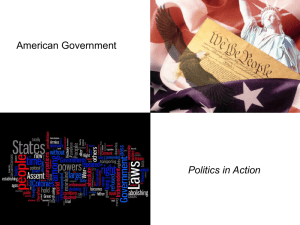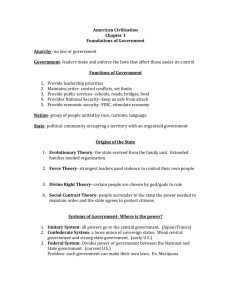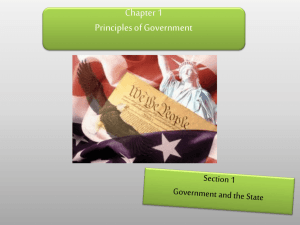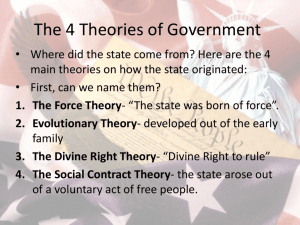Foundations of American Government
advertisement
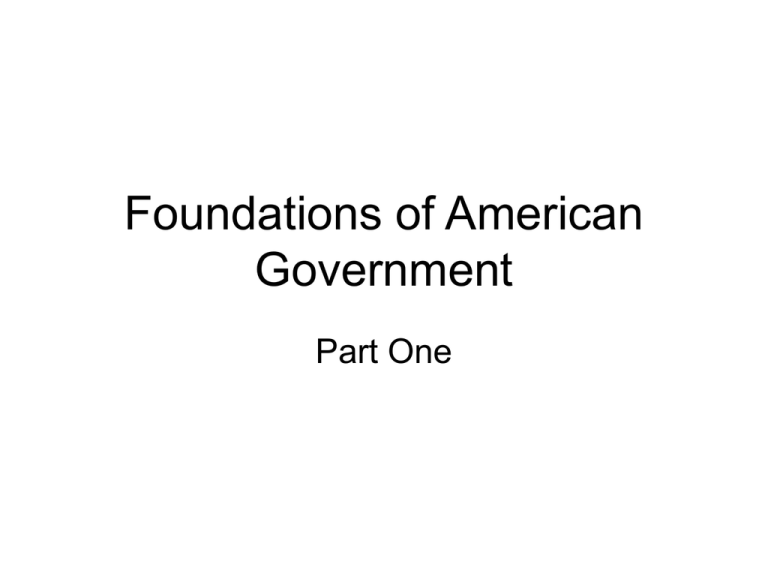
Foundations of American Government Part One What is Government? • It’s the institution through which a society makes and enforces its public policies. • Public Policies- cover matters ranging from taxation, national defense, education, crime, & health care to transportation, the environment, civil rights, business practices, & working conditions. In other words the laws and regulations made up by those in power. The State • Defined: a body of people, living in a defined territory, organized politically (government), and with the power to make & enforce law without the consent of any higher authority. 4 Characteristics of a State • Population- a state must have people • Territory- must have land & recognized boundaries. • Sovereignty- must have supreme & absolute power within its own territory. • Government- must be politically organized Origins of the State • The Force Theory- one person or group claimed control over an area & forced all within it to submit to that person or group’s rule. • The Evolutionary Theory- government evolved from the family. Origins of the State (continued) • The Divine Right Theory- the state was created by God & that God gave those of royal birth the divine right to rule. • The Social Contract Theory- the state rose out of a voluntary act of free people. The state exists only to serve the will of the people, that they are the sole force of political power, & that they are free to give or withhold that power as they choose. The Purposes of Government • To Form a More Perfect Union- in union there is strength. • To Establish Justice- the law, in both its content & its administration, must be reasonable, fair, & impartial. • To Insure Domestic Tranquility- order is essential to the well-being of any society. Purposes of Government (continued) • To Provide for the Common Defensedefending the nation against foreign enemies has always been one of government’s major responsibilities. • To Promote the General Welfare- government acts as the servant of its citizens. (education, transportation, etc.) • To Secure the Blessings of Libertyguarantees of rights & liberties Forms of Government • Unitary Government- all powers held by the government belong to a single, central agency.(Great Britain’s Parliament) • Federal Government- powers of the government are divided between a central government & several local governments. (United States) • Confederate Government- an alliance of independent states.(Confederate States of America or the South during the Civil War) Who May Participate? • Dictatorship- those who rule cannot be held responsible to the will of the people. Probably the oldest & most common form of government. • Democracy- supreme political authority rests with the people. Types of Democracy • Direct Democracy- the will of the people is translated into law directly by the people. (Ballot initiatives in Arizona) • Representative Democracy- a small group of persons chosen by the people to act as their representatives expresses the popular will. (US Congress) Foundations of Democracy • A recognition of the fundamental worth & dignity of every person. • A respect for the equality of all persons. • A faith in majority rule & an insistence upon minority rights. • An acceptance of the necessity of compromise. • An insistence upon the widest possible degree of individual freedom.
